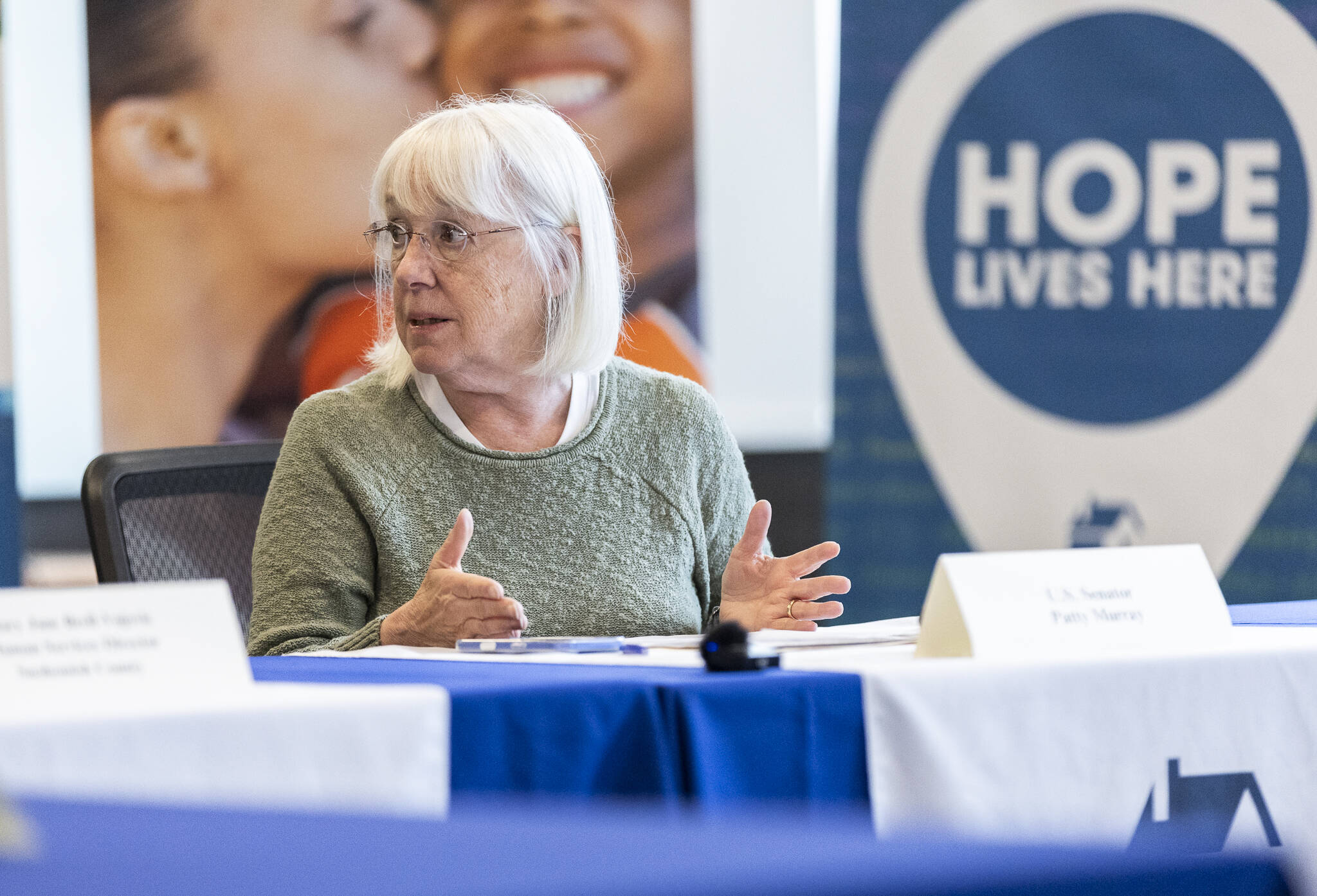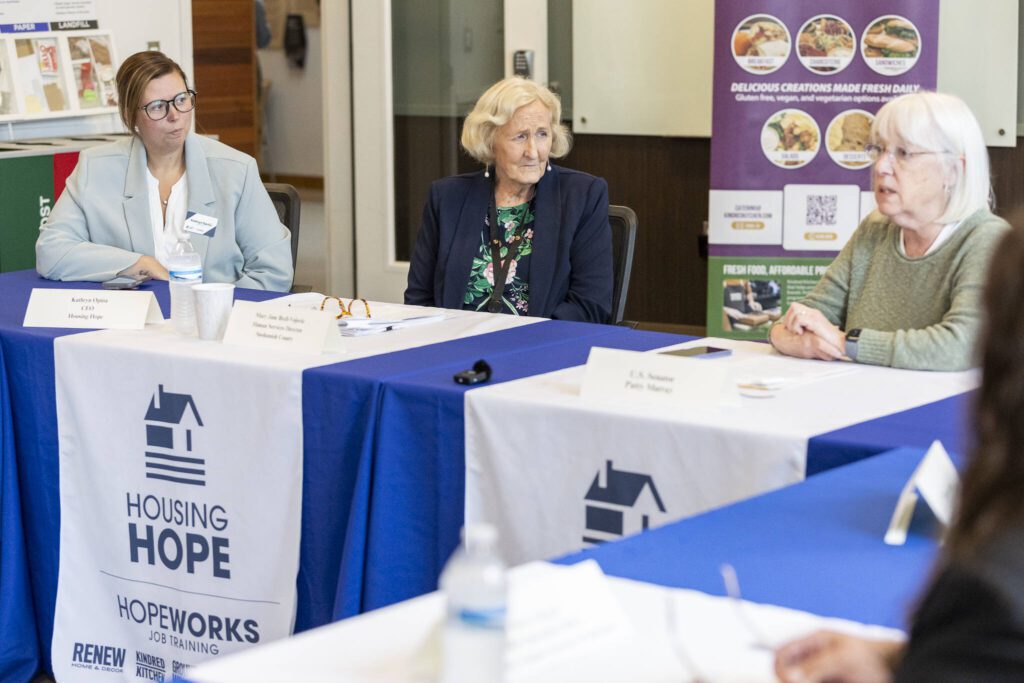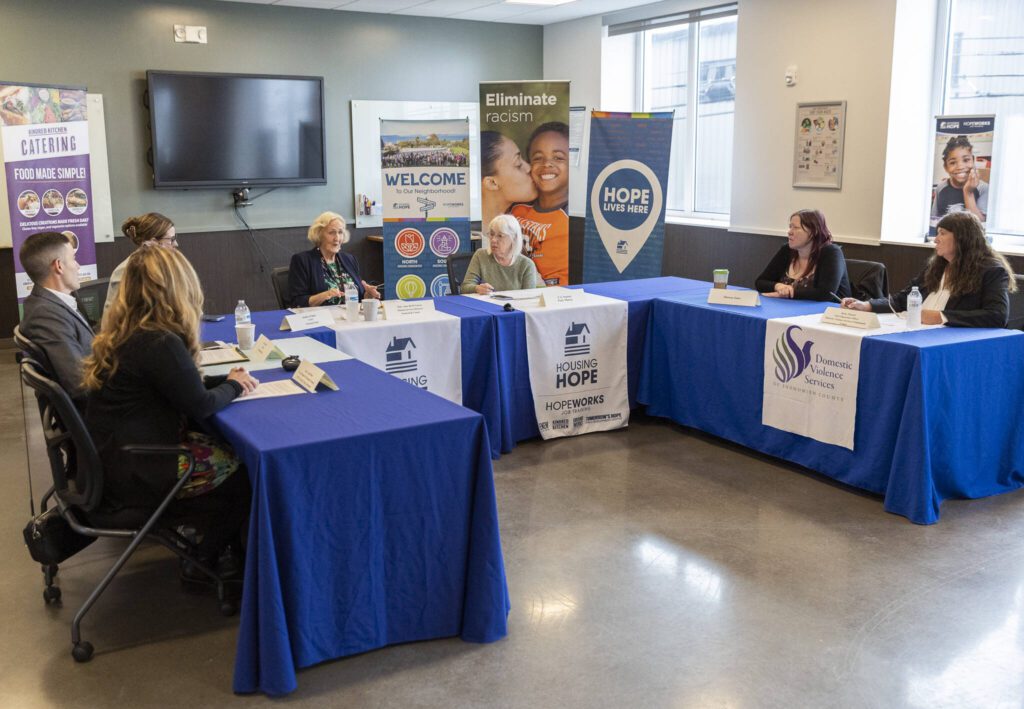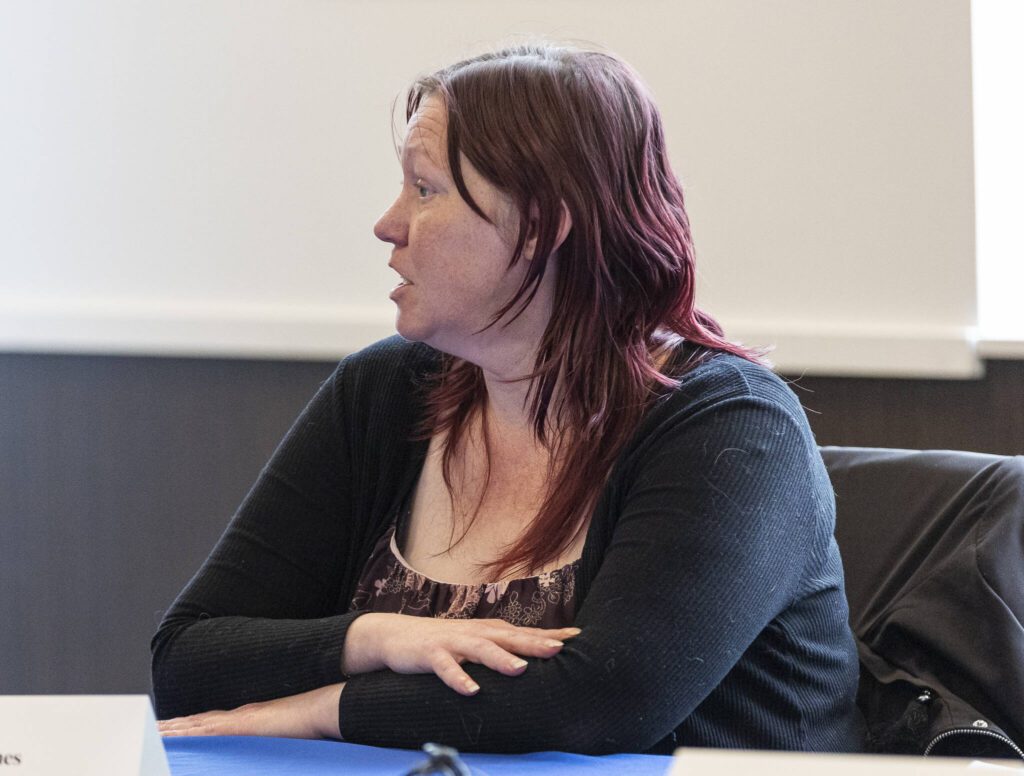EVERETT — Five years ago, Theresa Jones was living in a motel room with her three daughters.
Her daughters weren’t going to school regularly, and Jones was developing health issues because of the poor conditions her family was living in.
Now, Jones and her daughters live in a transitional housing unit provided by Housing Hope, a Snohomish County nonprofit that provides affordable housing. Jones is pursuing an associate degree in family and social services, homeschooling one of her children, working a part-time job and helping to facilitate a group for families in recovery.
But with nearly $17 million in federal homelessness assistance funding for Snohomish County up in the air, Jones is at risk of losing her transitional housing unit — and the progress she’s made over the past five years.
On May 2, Snohomish County joined seven local governments in suing the Trump administration for putting unlawful conditions on Continuum of Care grant funding. In Snohomish County, the grant funds 23 programs that offer housing and supportive services for homeless individuals and families. U.S. Sen. Patty Murray heard from Jones and affected organizations Thursday.
To receive the grant funding, organizations must comply with executive orders relating to immigration status, reproductive care, and diversity, equity and inclusion programs, according to a mandate from the Trump administration. The lawsuit alleges these are unlawful conditions.
On May 8, a district court judge granted a temporary restraining order, which prevents the federal government from enforcing the conditions. On May 23, the judge extended the restraining order to June 4. In Snohomish County, the Continuum of Care grant funding was supposed to begin July 1. It’s unclear what will happen next, especially if the Trump administration decides to appeal a court decision.
“It would be too long to have those funds come in and adapt to the situation in a timely manner,” said Snohomish County Department of Human Services Director Mary Jane Brell Vujovic.
Snohomish County’s Continuum of Care Network is one of 15 that has earned the highest designation from the U.S. Department of Housing and Urban Development.
“The Continuum of Care grant is extremely important, and it is frustrating to me that we don’t have somebody in the administration who understands what continuum of care means,” Murray said. “Housing and homelessness is a challenge, but it isn’t a one-issue challenge.”
In addition, the president’s proposed budget for fiscal year 2026 includes a number of cuts for housing assistance programs: a 42% cut to rental assistance programs, 12% to the Continuum of Care Program and a nearly 50% cut to the total Department of Housing and Urban Development budget.
The county is doing everything it can to make up the difference, Brell Vujovic said, but it won’t be enough in the long run.
“You can take down the system in a day, buy how long does it take to build that system up, and what is the impact on the people in the community?” Brell Vujovic said.
Right now, the county is working “feverishly” on contingency plans to mitigate the impact on Snohomish County providers, Brell Vujovic said.
While Housing Hope does not directly receive Continuum of Care funding, many of the providers in its network do, interim CEO Kathryn Opina said. The loss of funding could lead to a ripple effect throughout the county during a time in which the system is still restabilizing after the COVID-19 pandemic, she said.
“We’re having to make this really tough choice between using those dollars for preservation of existing units, or for housing to have individuals keep their housing right now,” Opina said. “It just doesn’t feel like a choice that we should have to make in a system that’s already pretty tough to work in.”
Cocoon House, a nonprofit that provides housing to youth and young adults, was set to receive $1.3 million in Continuum of Care grant funding, CEO Joe Alonzo said. The money goes toward supported young adult housing and the nonprofit’s youth engagement team.
“We are seeing under-18 housing and programs being decimated outside of this phenomenon that we’re dealing with,” Alonzo said. “Too many young people are entering homelessness early and revolving around shelters and short-term placements because long-term options don’t exist. This program helps with those long-term options.”
Nearly $9 million in Continuum of Care grant funding goes toward programs at YWCA Seattle | King | Snohomish, said Mary Anne Dillon, vice president of permanent housing at YWCA. The organization’s largest homelessness assistance program is Shelter Plus Care, which helps more than 500 adults and families with disabilities find housing each year. YWCA also has rapid rehousing and permanent supportive housing programs.
“This is a continuum and a safety net that we have built over the years, and without this funding, it will be destroyed,” Dillon said.
Just over $1 million in Continuum of Care grant funding goes toward Domestic Violence Services of Snohomish County. Domestic violence is one of the leading causes of homelessness for women and children, said Becky Megard, chief operational officer of the nonprofit. Without this funding, the organization would have to end its rapid rehousing program, which is currently supporting 12 households. Five staff members would lose their jobs.
“Survivors and their children will be forced to return to homelessness, unsafe environments or return to their abusers,” Megard said. “Long-standing relationships with landlords and community partners will be jeopardized.”
As vice chair of the Senate Appropriations Committee, Murray said she is dedicated to securing more funding for the Department of Housing and Development.
“It is an uphill battle,” Murray said, “but I’m going to be fighting every way I can to make sure that we can increase our non-defense side of the budget and put in as much for housing as we can.”
Jenna Peterson: 425-339-3486; jenna.peterson@heraldnet.com; X: @jennarpetersonn.
Talk to us
> Give us your news tips.
> Send us a letter to the editor.
> More Herald contact information.




























